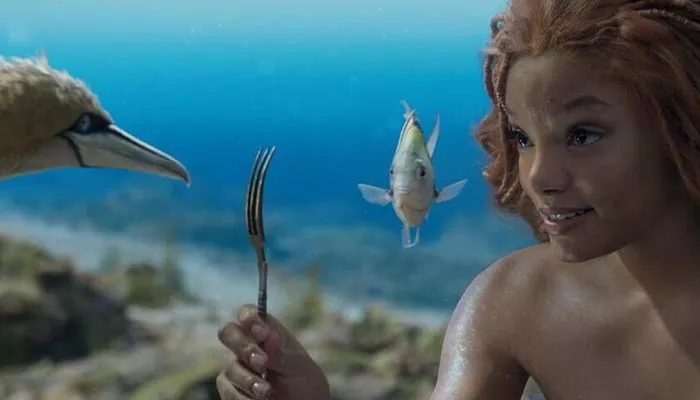The Little Mermaid is a beloved fairy tale that has captured the imaginations of generations of readers and viewers. While many people are familiar with the Disney version of the story, few know that The Little Mermaid was actually based on a book. In this essay, we will explore the book on which The Little Mermaid was based and its literary roots, including the broader fairy tale tradition in which it belongs.
Hans Christian Andersen’s “The Little Mermaid”
Hans Christian Andersen’s version of The Little Mermaid is the most famous and enduring adaptation of the story. First published in Danish in 1837, the story tells the tale of a young mermaid who falls in love with a human prince and makes a deal with a sea witch to become human herself. However, the transformation comes at a price: the mermaid must give up her voice and endure excruciating pain with every step she takes on land. Ultimately, the mermaid’s love goes unrequited, and she is forced to return to the sea, where she turns into foam.
Andersen’s version of The Little Mermaid is notable for its melancholy tone and its exploration of themes such as sacrifice, unrequited love, and the search for identity. The story has been interpreted in many different ways over the years, with some readers seeing it as a commentary on the limitations of women in society and others viewing it as a meditation on the nature of art and creativity. Andersen’s version of the story has become a classic in its own right, and has inspired countless adaptations and retellings.
“The Little Mermaid” by Hans Christian Andersen
While Hans Christian Andersen’s version of The Little Mermaid is the most famous, it was actually based on an earlier story by Friedrich de la Motte Fouqué. Fouqué’s story, titled “Undine,” was published in 1811 and tells the tale of a water spirit who falls in love with a knight and becomes human in order to marry him. Like Andersen’s Little Mermaid, Undine must give up her supernatural powers and endure pain in order to become human. The story was popular in its time and inspired many adaptations and retellings.
Andersen was familiar with Fouqué’s story and was inspired by it when he wrote his own version of The Little Mermaid. However, Andersen’s story is much darker and more melancholy than Fouqué’s. In Andersen’s version, the mermaid’s love goes unrequited, and she is forced to return to the sea and turn into foam. The story is a powerful meditation on the nature of love and sacrifice, and has inspired countless adaptations and retellings over the years.
The Fairy Tale Tradition
The story of The Little Mermaid has its roots in the broader fairy tale tradition, which includes tales from many different cultures and time periods. The story of a mermaid who longs to become human and win the love of a prince has been told in many different forms. For example, in ancient Greece, the poet Ovid wrote about a sea nymph named Scylla who falls in love with the human Glaucus. In this version of the story, Scylla is transformed into a monster as punishment for her desire.
In the European fairy tale tradition, the story of the mermaid and the prince has been told in many different forms. In some versions, the mermaid is able to win the prince’s love and live happily ever after on land. In others, the mermaid is betrayed by the prince and is forced to return to the sea. The story has been adapted and retold in many different cultures and languages, and continues to be a popular subject for artists and storytellers.
The Legacy of The Little Mermaid
The enduring popularity of The Little Mermaid can be seen in the numerous adaptations and retellings of the story that have been created over the years. Perhaps the most famous adaptation is the Disney animated film of the same name, which was released in 1989 and has become a beloved classic in its own right. The film has spawned sequels, merchandise, and even a Broadway musical.
However, The Little Mermaid has also been adapted in many other forms, including stage productions, ballets, operas, and even video games. These adaptations have often taken the story in new directions, exploring different themes and adding new characters and plot elements. For example, in the Japanese anime series Mermaid Melody Pichi Pichi Pitch, the mermaids are pop stars who use their singing voices to fight evil.
Conclusion
In conclusion, The Little Mermaid is a beloved fairy tale that has its roots in the broader fairy tale tradition. While Hans Christian Andersen’s version of the story is perhaps the most famous, it was actually based on an earlier story by Friedrich de la Motte Fouqué. The story of the mermaid who longs to become human and win the love of a prince speaks to universal themes such as love, sacrifice, and the search for identity. As the story continues to be adapted and reinterpreted in new forms, it remains a testament to the enduring power of the fairy tale tradition. The Little Mermaid will continue to be adapted and reinterpreted in new forms, it remains a testament to the enduring power of the fairy tale tradition. The Little Mermaid will continue to enchant audiences for generations to come.
Related content:

